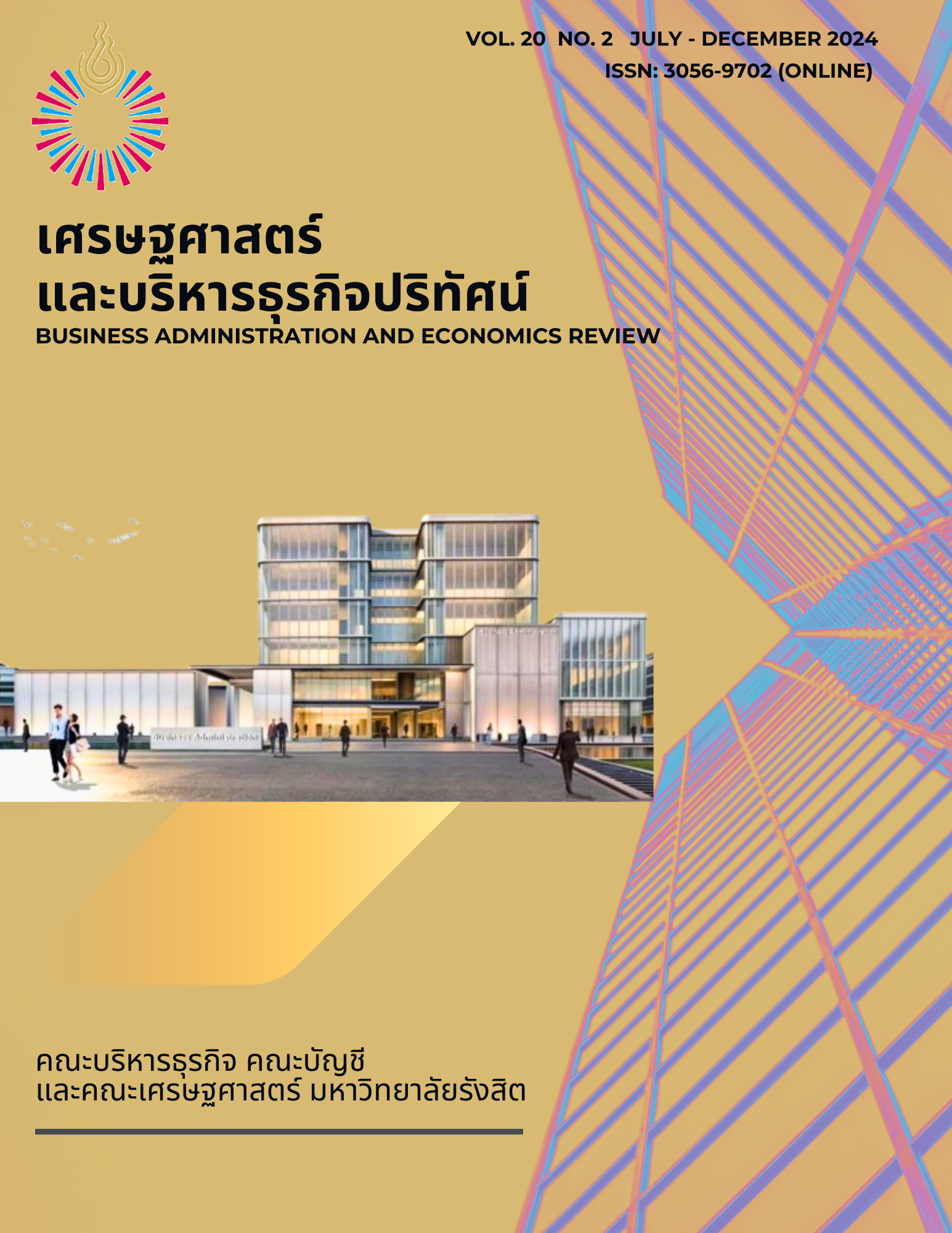The Economics of Cybercrime: State of Knowledge and Future Research
Keywords:
Economics of Cybercrime, Cybersecurity, EconomyAbstract
Cybercrime poses a significant threat to Thailand's economy, security, and societal well-being. Economic factors such as income inequality, poverty, and unemployment are key drivers that push individuals toward cybercrime, particularly among low-income groups who perceive it as a means of financial stability. While education can help reduce crime rates, when coupled with technical skills, it can also lead to more sophisticated cyberattacks. Technological advancements, though beneficial for economic growth, create new avenues for cybercriminals. Thailand is highly vulnerable due to widespread internet usage, fast broadband connections, and varying levels of technological literacy. Despite the presence of cybersecurity laws and specialized enforcement agencies, challenges remain due to the ever-evolving nature of cyber threats. The economic impact of cybercrime in Thailand is severe, leading to significant financial losses, reduced foreign investment, and diminished trust in digital platforms. To effectively combat this issue, further research on the economic and technological drivers of cybercrime, as well as international collaboration, is essential to create a secure digital future for Thailand
References
Bukrapue, P. (2015). Fraudulent activities against foreign tourists in Thailand: A case study of
jewelry business. International Journal of Criminal Justice Sciences, 10(165).
Calderwood, F., & Popova, I. (2018). Smartphone cyber security awareness in developing
countries: A case of Thailand. In Digital Forensics and Cyber Crime (pp. 79-86). Springer, Cham.
Calderwood, F., & Popova, I. (2018). Smartphone cyber security awareness in developing
countries: A case of Thailand. In Proceedings of the 2018 International Conference on Information
and Communication Technology for Development (ICT4D).
Chotewetsin, P. (2023). Political risk factors affecting the economy of Thailand. SSRN
Electronic Journal. https://doi.org/10.2139/ssrn.1234567
Dearden, T. E., Parti, K., & Hawdon, J. (2021). Institutional Anomie Theory and Cybercrime—
Cybercrime and the American Dream, Now Available Online. Journal of Contemporary Criminal
Justice, 37(3), 311-332. https://doi.org/10.1177/1043986221991234
Emerald Expert Briefings. (2018). Thailand firms up Asian trend on cybersecurity rules.
Emerald Insight.
Financial Crime News. (2024). Thailand Country Financial Crime Dashboard 2024. Retrieved
from https://www.financialcrimenews.com
Kraiwanit, T., & Srijaem, P. (2021). Evaluation of Internet Transaction Fraud in Thailand. SSRN
Electronic Journal. https://doi.org/10.2139/ssrn.1234568
Kshetri, N. (2006). The simple economics of cybercrimes. IEEE Security & Privacy Magazine,
(1), 33-39. https://doi.org/10.1109/MSP.2006.4
Kshetri, N. (2013). Cybercrime and Cybersecurity in the Global South: Status, Drivers and
Trends. In The Global Cybercrime Industry (pp. 1-29). Palgrave Macmillan, London.
Leukfeldt, E. R., & Yar, M. (2016). Applying Routine Activity Theory to Cybercrime: A
Theoretical and Empirical Analysis. Deviant Behavior, 37(3), 263-280. https://doi.org/10.1080/01639625.2015.1012409
Machim, K., Jariyapoom, T., & Pornpundejwittaya, P. (2020). Guidelines for the protection of
computer crime threats in the industrial business. Academy of Strategic Management Journal, 19.
OpenGov Asia. (2024). Thailand's strategies to combat cybercrime. Retrieved from
https://www.opengovasia.com/thailands-strategies-to-combat-cybercrime/
Park, J., Cho, D., Lee, J. K., & Lee, B. (2019). The economics of cybercrime. ACM Transactions
on Management Information Systems (TMIS), 10(1-23). https://doi.org/10.1145/3290531
Riek, M., Böhme, R., & Moore, T. (2016). Measuring the influence of perceived cybercrime risk
on online service avoidance. IEEE Transactions on Dependable and Secure Computing,
(261-273). https://doi.org/10.1109/TDSC.2015.2438521
Rogers, M. (2011). The psyche of cybercriminals: A psycho-social perspective. In Psychology
of Cybercrime.
Rungsrisawat, S., Jermsittiparsert, K., & Thanetpaksapong, S. (2019). Do the crime and the
socioeconomic strain affects economic growth? A case of an emerging ASEAN economy. Journal of Security and Sustainability Issues, 9(391-407). https://doi.org/10.9770/jssi.2019.9.3(9)
Siahaan, A. (2018). Impact of cybercrime on technological and financial developments. SSRN
Electronic Journal. https://doi.org/10.2139/ssrn.1234570
Stalans, L., & Donner, C. M. (2018). Explaining why cybercrime occurs: Criminological and
psychological theories. In Understanding Cybercrime.
Ter, K. L. (2017). Combating cybercrime in Singapore. TIJ's Research Journal of Social Science
& Management - RJSSM, 7.
Thai Examiner. (2024). Campaign to fight cybercrime in Thailand. Retrieved from
Thaiger. (2024). Latest crime news in Thailand. Retrieved from https://www.thethaiger.com
Tilleke & Gibbins. (2024). Thailand's new cybercrime measures enlist aid of banks and service
providers. Retrieved from https://www.tilleke.com/insights/thailands-new-cybercrime-measures-enlist-aid-of-banks-and-service-providers/
Tilleke & Gibbins. (2024). Thailand establishes a technology crime court. Retrieved from
https://www.mondaq.com/thailand/crime/1302912
Worldmetrics. (2024). Thailand Crime Rate Statistics: Market Data Report 2024. Retrieved

Downloads
Published
How to Cite
Issue
Section
License
Copyright (c) 2024 Business Administration and Economics Review

This work is licensed under a Creative Commons Attribution-NonCommercial-NoDerivatives 4.0 International License.
The contents in Business Administration and Economics Review can be used for publication. But do not modify, modify or use it for trade and profit.

